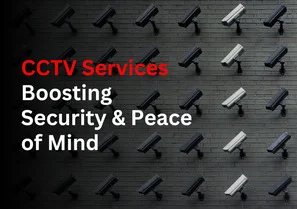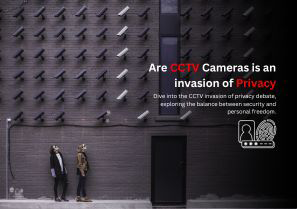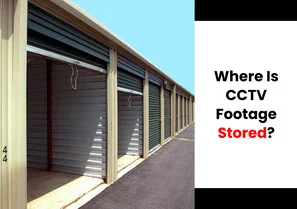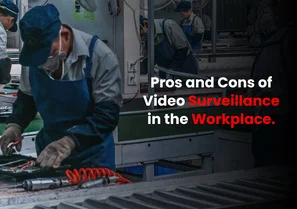In today’s world, ensuring the safety and security of our businesses and properties is of utmost importance. One effective solution that has gained immense popularity is Closed Circuit Television (CCTV) surveillance. CCTV services provide a comprehensive and reliable means to monitor premises, deter crime, and collect valuable video/audio evidence. In this ultimate guide, we will explore the world of CCTV services, including what they are, how they work, the different types available, and the numerous benefits they offer.

Understanding CCTV Services.
CCTV, also known as closed-circuit television, is a system that allows for continuous monitoring of a location through the use of cameras. These cameras capture video footage, which can be viewed in real-time or recorded for future reference. CCTV services are widely used by businesses, government agencies, and various organizations to enhance security and protect assets.
The primary goal of CCTV services is to provide a comprehensive surveillance solution that acts as a deterrent to potential criminals and enables the collection of valuable evidence in the event of a security breach. By deploying a well-designed CCTV system, businesses can significantly reduce the risk of theft, vandalism, and other security incidents.
Different Types of CCTV Systems.
CCTV systems come in various types, each with its own set of features and capabilities. Here are the three main types of CCTV systems:
Analog CCTV Systems
Analog CCTV systems are the traditional form of CCTV surveillance. They use analog cameras to capture video footage, which is then transmitted via coaxial cables to a recording device. Analog systems often require a video capture card to process and store the recorded footage. While analog systems are cost-effective, they generally offer lower resolution and limited features compared to digital systems.Digital CCTV Systems
Digital CCTV systems, as the name suggests, digitize video signals at the camera level. These systems eliminate the need for a video capture card and store the footage directly on a computer or network video recorder (NVR). Digital systems offer higher resolution and improved image quality compared to analog systems. They also provide more flexibility in terms of storage capacity and advanced features such as remote access and video analytics.IP or Network CCTV Systems
IP or network CCTV systems utilize IP cameras to capture and transmit video footage over an internet protocol (IP) network. These systems offer superior image quality, scalability, and advanced features. IP cameras can be wired or wireless and are capable of transmitting high-resolution video feeds. Network video recorders (NVRs) are used to store and manage the recorded footage. IP CCTV systems also provide the flexibility of remote monitoring and integration with other security systems.

How CCTV Security Systems Work.
Understanding the working principle of CCTV security systems is essential to grasp their functionality and benefits. A typical CCTV system consists of the following components:
- Cameras: CCTV cameras, whether analog or digital, play a crucial role in capturing video footage. They are equipped with image sensors that convert light into electronic signals. These cameras can be fixed, pan-tilt-zoom (PTZ), indoor, outdoor, or even thermal cameras for surveillance in low-light conditions.
- Recorders: CCTV systems utilize recorders to store the captured video footage. There are two types of recorders commonly used: digital video recorders (DVRs) and network video recorders (NVRs). DVRs process and store footage themselves, while NVRs encode and process the footage at the camera level before streaming it for storage and remote monitoring.
- Cables: Cables are used to transmit video signals from the cameras to the recorders. Coaxial cables are typically used in analog systems, while network cables (such as Ethernet cables) are used in digital and IP systems.
- Monitors: Monitors are used to display the transmitted video footage in real-time. They can be actively monitored by security personnel or passively monitored through software. Monitors provide a visual representation of the surveillance area, allowing for immediate response to any security incidents.
In digital and IP CCTV systems, the recorders often come equipped with advanced features such as video analytics, which can analyze the video feeds for face recognition, motion detection, and other intelligent functionalities. These features enhance the operational capabilities of the CCTV system and enable proactive security measures.
Benefits of CCTV Surveillance
Investing in CCTV services provides numerous benefits that significantly enhance security and peace of mind. Here are some key advantages of CCTV surveillance:
- Deterrence: The presence of visible CCTV cameras acts as a deterrent to potential criminals. Knowing that their actions are being monitored and recorded greatly reduces the risk of theft, vandalism, and other criminal activities.
- Evidence Collection: In the unfortunate event of a security breach or incident, CCTV cameras provide valuable video evidence that can aid in identifying perpetrators and solving crimes. This evidence can be used by private security agencies, law enforcement, and courts of law to apprehend criminals and ensure justice.
- Crime Prevention: CCTV surveillance not only helps in solving crimes but also plays a crucial role in preventing them. The mere presence of visible cameras can discourage potential criminals from targeting a property, as the risk of being caught on camera increases significantly.
- Remote Monitoring: With the advancement of technology, CCTV systems now offer the convenience of remote monitoring. This means that you can access the live video feeds and recorded footage from anywhere, using a computer, smartphone, or tablet. Remote monitoring allows for real-time surveillance and quick response to any security incidents, even when you are away from the premises.
- Operational Insights: CCTV systems can provide valuable insights into the operational aspects of a business. Video analytics tools can analyze customer patterns, count people, capture license plates, and more. This data can help businesses optimize their operations and make informed decisions based on customer behavior and traffic flow.
- Reduced Liability: CCTV footage often serves as concrete evidence in legal proceedings, protecting businesses from fraudulent or frivolous claims. Having video archives readily available can help resolve disputes, eliminate false accusations, and reduce exposure to litigation.
- Peace of Mind: One of the most significant benefits of CCTV surveillance is the peace of mind it brings. Knowing that your property is under constant surveillance and that you have the ability to monitor it remotely provides a sense of security and reassurance, both for business owners and employees.
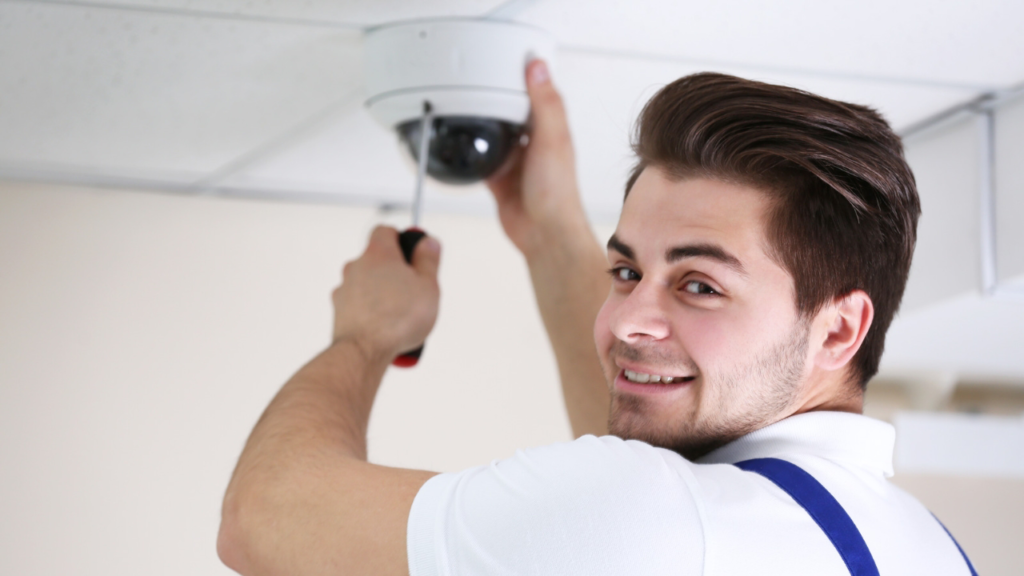
Drawbacks of CCTV Surveillance.
While CCTV surveillance offers numerous benefits, it is essential to be aware of its potential drawbacks. Here are some drawbacks to consider:
- Privacy Concerns: CCTV surveillance can raise privacy concerns, as individuals may feel uncomfortable being constantly monitored. It is crucial to strike a balance between security and privacy, ensuring that surveillance is conducted within legal and ethical boundaries.
- System Limitations: Ineffective system configurations, old or faulty equipment, and low-quality video footage can limit the effectiveness of CCTV surveillance. It is essential to invest in high-quality cameras, proper installation, and regular maintenance to ensure optimal performance.
- Blind Spots: Inadequate camera placement can result in blind spots, areas that are not covered by surveillance cameras. Proper planning and strategic camera placement are necessary to minimize blind spots and ensure comprehensive coverage.
- Communication and Monitoring: Effective communication and monitoring are crucial for CCTV surveillance to be successful. Proper training of security personnel and regular monitoring of the video feeds are necessary to detect and respond to security incidents promptly.
- Cybersecurity Risks: With the increasing integration of CCTV systems with network infrastructure, there is a risk of cyber attacks. It is essential to implement robust cybersecurity measures, such as encryption and regular software updates, to protect against unauthorized access and data breaches.
It is important to address these drawbacks proactively to maximize the benefits of CCTV surveillance while mitigating any potential risks.
Application Areas of CCTV.
CCTV surveillance finds applications in various industries and sectors, offering tailored solutions to meet specific needs. Here are some key application areas of CCTV services:
Crime Management
CCTV surveillance plays a vital role in crime management. It acts as a deterrent to potential criminals and provides law enforcement agencies with valuable evidence in the event of a crime. CCTV systems are widely used in public places, banks, retail stores, and other high-security areas to monitor and prevent criminal activities.Retail and Market Research
In the retail industry, CCTV surveillance provides valuable market intelligence. By monitoring customer behavior, traffic flow, and buying trends, retailers can optimize store layouts, improve customer experience, and identify potential areas for improvement. CCTV systems also help prevent theft, shoplifting, and employee misconduct in retail environments.Traffic Monitoring and City Surveillance
CCTV cameras installed at traffic lights and major intersections enable the monitoring of traffic patterns, gathering valuable data for traffic management and planning. Additionally, CCTV surveillance in cities and public spaces allows for the monitoring and management of large crowds, ensuring public safety during events and gatherings.Healthcare and Medical Facilities
CCTV systems find applications in healthcare and medical facilities, where they are used to monitor patients, prevent theft of medical supplies, and enhance overall security. CCTV cameras can assist in identifying potential medical crises and provide crucial evidence in case of disputes or incidents within medical facilities.
These are just a few examples of the diverse application areas where CCTV surveillance proves to be instrumental in enhancing security, safety, and operational efficiency.

The Future of CCTV Surveillance.
As technology continues to evolve, the future of CCTV surveillance holds exciting possibilities. Here are some emerging trends and advancements in the field:
- High-Resolution Cameras: The development of high-resolution cameras, such as 4K and 8K cameras, offers enhanced image quality and more detailed video footage.
- Artificial Intelligence and Video Analytics: The integration of artificial intelligence and video analytics capabilities into CCTV systems allows for advanced functionalities such as facial recognition, object detection, and automated alerts. These intelligent features enhance the effectiveness of CCTV surveillance and enable proactive security measures.
- Cloud-Based Storage and Remote Monitoring: Cloud-based storage solutions enable seamless access to video footage from anywhere, eliminating the need for physical storage devices. Remote monitoring capabilities continue to evolve, enabling real-time surveillance and quick response to security incidents.
- Integration with IoT and Smart Devices: CCTV systems are being integrated with Internet of Things (IoT) devices and smart devices, creating a more interconnected and intelligent security ecosystem. This integration allows for seamless communication between different security systems and devices, enhancing overall security and automation.
- Enhanced Cybersecurity Measures: With the increasing reliance on network infrastructure, robust cybersecurity measures are crucial to protect CCTV systems from cyber threats. Advancements in cybersecurity technologies will continue to enhance the resilience and integrity of CCTV surveillance.
These advancements indicate a future where CCTV surveillance becomes more proactive, intelligent, and seamlessly integrated with other security systems.
Choosing a Reliable CCTV Service Provider.
Selecting the right CCTV service provider is crucial to ensure the effectiveness and reliability of your surveillance system. Here are some factors to consider when choosing a CCTV service provider:
- Experience and Expertise: Look for a provider with a proven track record and extensive experience in designing, installing, and maintaining CCTV systems. A knowledgeable and skilled team can tailor the solution to your specific requirements.
- Quality of Equipment: Ensure that the provider offers high-quality CCTV cameras, recorders, and other components. Quality equipment ensures optimal performance, reliability, and longevity.
- Customization and Scalability: Your CCTV system should be scalable to accommodate future growth and evolving security needs. A provider that offers customization options and flexibility will ensure that the system can be tailored to your unique requirements.
- Support and Maintenance: Choose a provider that offers comprehensive support and maintenance services. Regular maintenance and prompt technical support are essential to keep your CCTV system running smoothly and effectively.
- Integration Capabilities: Consider a provider that offers integration capabilities with other security systems, such as access control and alarm systems. Integrated systems provide a cohesive security solution and enhance overall effectiveness.
- Compliance with Regulations: Ensure that the provider adheres to relevant regulations and standards regarding CCTV surveillance. This includes privacy laws, data protection regulations, and industry-specific guidelines.
By carefully evaluating these factors and conducting thorough research, you can select a reliable CCTV service provider that meets your security needs and ensures long-term satisfaction.
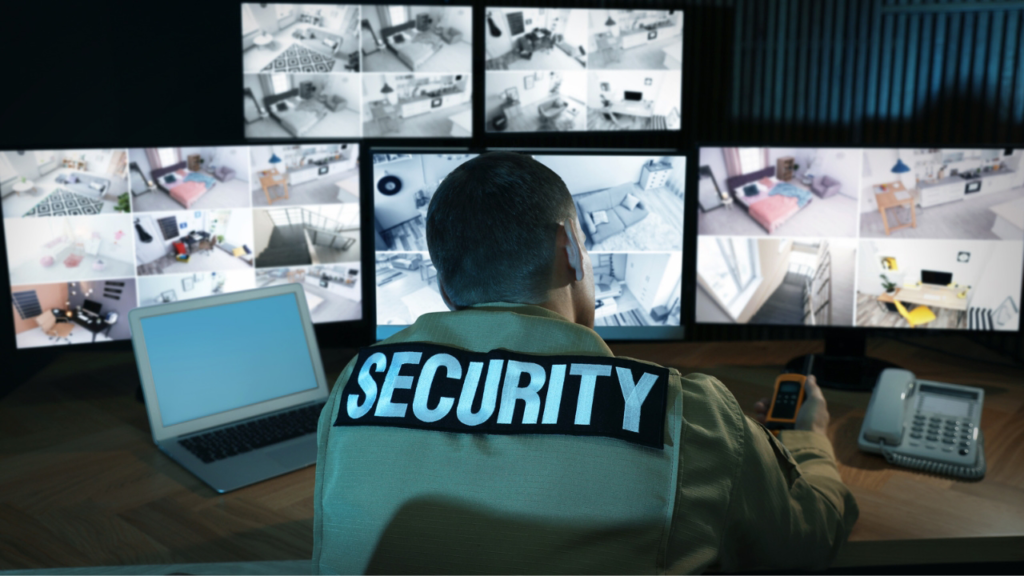
(FAQs) Frequently Asked Questions.
Q1: How many cameras do I need for my premises?
The number of cameras required depends on several factors, including the size of the premises, the layout, and the specific security requirements. A professional CCTV service provider can conduct a comprehensive assessment of your premises and recommend the optimal number and placement of cameras.
Q2: Can I access CCTV footage remotely?
Yes, with the advancement of technology, most modern CCTV systems offer remote access capabilities. You can access live video feeds and recorded footage from anywhere using a computer, smartphone, or tablet, as long as you have an internet connection.
Q3: How long can CCTV footage be stored?
The storage capacity of CCTV systems depends on factors such as the type of recording device, the resolution of the footage, and the available storage space. With advancements in storage technology, it is now possible to store footage for extended periods, ranging from several days to several months or even longer.
Q4: What are the legal considerations for CCTV surveillance?
CCTV surveillance is subject to legal and regulatory considerations, including privacy laws and data protection regulations. It is essential to comply with these regulations and ensure that your CCTV system is used responsibly and ethically. Consult with legal professionals or relevant authorities to ensure compliance with local regulations.
Q5: Can CCTV cameras be tampered with or hacked?
While no system is entirely immune to tampering or hacking, implementing robust cybersecurity measures can significantly reduce the risk. It is essential to choose reputable CCTV equipment manufacturers and service providers that prioritize security and regularly update their systems to address emerging threats.

Conclusion.
CCTV services have revolutionized the way we approach security and surveillance. Whether you are a business owner, a government agency, or an organization looking to enhance security and peace of mind, CCTV surveillance offers a comprehensive and reliable solution. By understanding the different types of CCTV systems, their benefits, drawbacks, and application areas, you can make informed decisions when it comes to implementing a CCTV system.
Remember to choose a reputable CCTV service provider with experience, expertise, and a commitment to quality. By investing in a well-designed and properly maintained CCTV system, you can protect your assets, deter potential criminals, and ensure the safety of your premises. Embrace the future of CCTV surveillance, where technology continues to evolve, and security becomes more intelligent, proactive, and interconnected.
If you are ready to enhance your security with CCTV services, contact our reliable and experienced team today. We are here to provide tailored solutions that meet your unique requirements and offer peace of mind through comprehensive surveillance.

